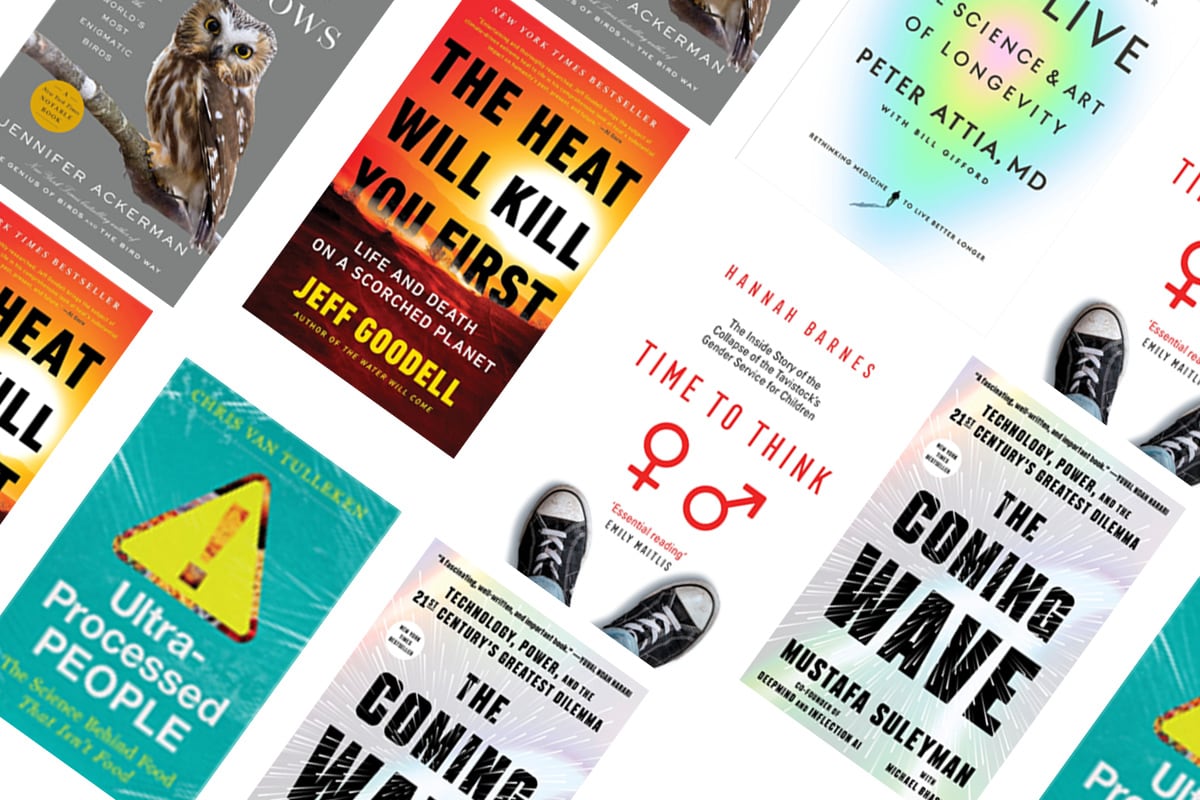A cogent look at the potential of ai to transform the economy and society, along with the risks of misuse and surveillance. By a co-founder of DeepMind, a leading ai company, and board member of The Economist’s parent company.
A thorough, sometimes frightening examination of the many ways that rising temperatures threaten environments and societies. The author, a climate journalist, tells his story through intrepid reporting and memorable characters. It is one of the rare books on climate change that anyone can pick up and understand.
A longevity expert shows just how behind the times much of modern medicine is, partly because it so often seeks to cure rather than prevent chronic disease. There are very simple things people can do to live longer and more healthily.
This book focuses on a medical scandal at a paediatric gender clinic in Britain, but it also tackles a controversy that is playing out across the rich world: how to treat gender-identity dysphoria in children. A journalistic and sobering take on a divisive subject.
There is much to cheer about calories being cheap and abundant, when for most of history they were neither. But the cheapness and abundance of “ultra-processed” food comes at a cost. (Warning: this book may ruin the joy of junk food.)
A natural-history writer draws on recent research to explain the magic and allure of owls. An ear tuft-to-tail appreciation of the raptor that Mary Oliver, a poet, called the “god of plunge and blood”.






